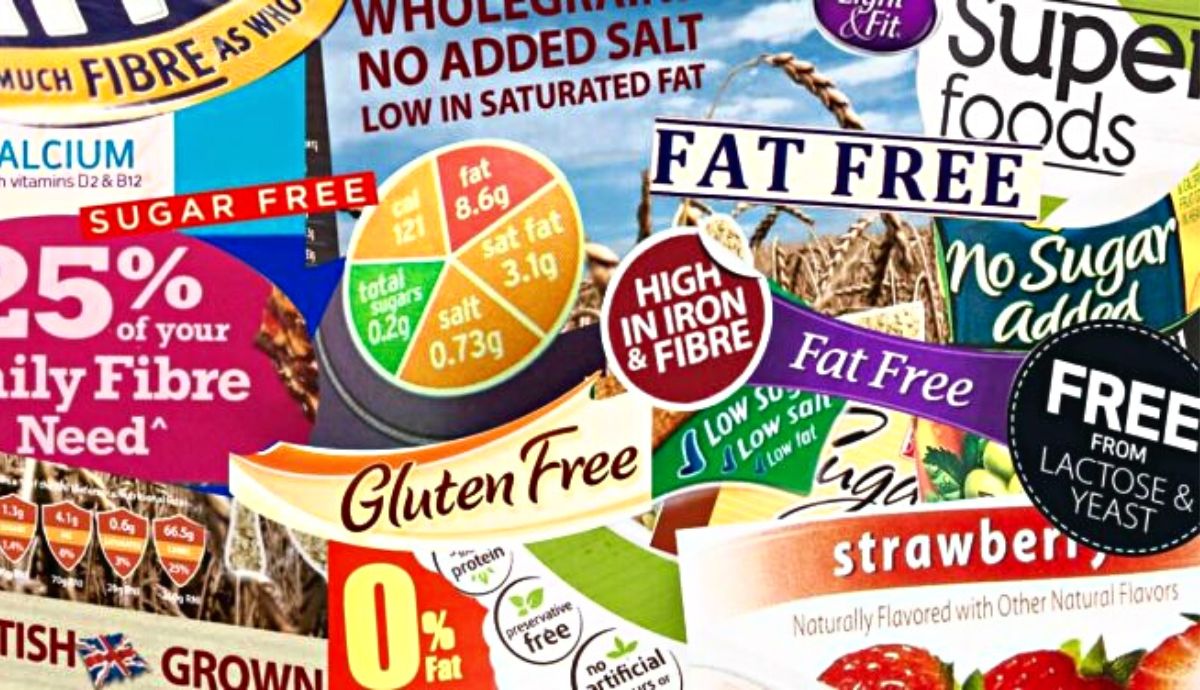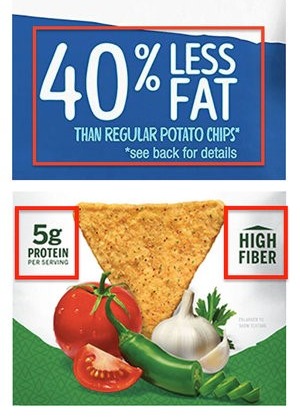Decoding Food Labelling Claims in India: What You Need to Know!
August 3, 2023

Keywords: Food labelling claims, Food claims, Food products, Advertising, FSSAI, ASCI, Advertising Standards Council of India
In today's competitive market, where numerous food products vie for consumers' attention, a food product without any claims on its packaging can often seem unappealing and unattractive. Food labelling claims have become an integral part of marketing strategies employed by manufacturers to capture consumer interest and convey the unique selling points of their products. These claims influences consumer choices, shaping their perception of the food product's quality and desirability.
Let’s deep dive into exploring food labelling claims in detail with type of claims and examples.
Understanding Food Labelling Claims
Food labelling claims are statements made on food packaging that provide information about the nutritional value, health benefits, or specific characteristics of a product. They serve as a means of communication between manufacturers and consumers, helping buyers make informed choices about the foods they purchase. Food Safety and Standards Authority of India (FSSAI) has defined claim as: “Claim means any representation which is printed, oral, audio or visual and states, suggests, or implies that a food has particular qualities relating to its origin, nutritional properties, nature, processing, composition or otherwise”.
Advertising and Food Labelling Claims: Regulatory Framework
The responsibility of setting food labelling requirements in India lies with the Food Safety and Standards Authority of India, commonly known as FSSAI. It is the apex regulatory body responsible for overseeing food safety and labelling regulations. Whenever a new product is introduced or the packaging of an existing product is updated, the producer is obliged to adhere to the labelling regulations established by the FSSAI. FSSAI has laid down specific guidelines in its Advertising and Claims Regulations of 2018, to ensure that food labelling claims are accurate, transparent, and not misleading.
Another Body that plays a crucial role in monitoring and regulating food labelling claims in India is The Advertising Standards Council of India (ASCI). ASCI is a self-regulatory body that ensures fair and ethical advertising practices across various industries, including the food sector. ASCI reviews and evaluates advertisements, including claims made on food packaging, to ensure they are truthful, substantiated, and not misleading to consumers. If any advertisement, including food labelling claims, is found to be in violation of ASCI's guidelines, appropriate action is taken to rectify or remove the misleading content. ASCI's role in upholding advertising standards helps protect consumers from false or exaggerated claims and promotes transparency and credibility in the food industry.
Types of Food Labelling Claims with examples
1. Nutrition Claims:
These claims provide information about the nutrient content of a food product. These claims hold significance as they assist consumers in making informed choices, opting for products that offer specific nutritional benefits over ordinary items. There are two types of nutrition claims: nutrient content claims and nutrient comparative claims. Nutrient content claims describe the extent of a nutrient within a product. Examples include "fat-free," "low in sodium," "sugar-free," and more. While nutrient comparative claims compare nutrient levels between two or more foods. Examples include 35% less sodium than regular potato chips. FSSAI Regulations has defined certain conditions and rules for Nutrient content claims such as a Food Product can be claimed to be High in Fibre only if the Fibre content in the product is more than 6g / 100g.

Image Credit: Introduction to food product claims-FDA reader
2. Health Claims:
Health claims are statements that suggest a relationship between a food product and its impact on health. For instance, claims like "plant sterols help lower cholesterol" or "a diet rich in fruits and vegetables may reduce the risk of certain cancers" fall under health claims. Health claims are categorized into nutrient function claims, other function claims, and reduction of disease risk claims, each describing the role, benefits, or risk reduction associated with a specific food or constituent. It's important to note that health claims must be supported by scientific evidence, justification, substantiation and comply with FSSAI regulations.
To know more on Health claims refer blog: What Kind Of Health Claims Are Allowed On Food Labels? | Information Center (foodlabelsolutions.com)
3. Non-addition Claims:
Non-addition claims refer to claims made about the absence of certain substances in a food product. These include non-addition of sugars, non-addition of sodium salts and non-addition of additives. Claim statements can be made only if the product contains no sugar/sodium or additive source of any kind. Additional conditions or disclaimer statements may be used to enhance consumer understanding of non-addition claims, provided they are prominently displayed and easily readable on the label. Examples include No added sugar, No preservatives, Free of sodium, etc.
4. Food Category specific claims:
The Regulations specifies certain claims that can be made for specific food categories. Such as certain specific claims that can be made for Edible Vegetable oils. Example: Coconut oil contains medium chain fatty acids that are easily metabolized. Another category is that of Breads. Example: a bread product can be called as Multigrain bread, only if Minimum 20% of speciality ingredients should are grains other than wheat.
5. Claims using certain words or phrases:
The use of specific words or phrases is governed by certain conditions. FSSAI has specified the following 6 words and rules to use the same as a claim statement.
Natural
Fresh
Pure
Authentic, genuine, real
Traditional
Original
For instance, the term "natural" can be used to describe a single food derived from a recognized source without any additives, subjected only to suitable processing for human consumption. It can also apply to permitted food additives obtained from natural sources. However, composite foods cannot be directly described as "natural," but can be labelled as "made from natural ingredients" if all the ingredients meet the specified criteria.
6. Claims requiring certification:
With the rising popularity of organic and vegan foods, many products carry labels such as "organic," "vegan,". These claims can only be made on a product if a certificate has been obtained from the authority. These claims are also declared with the help of approved logos of Organic (Jaivik Bharat) and Vegan.
To know on Advertising and Food Labelling claims and the role of Artificial Intelligence, refer blog: Artificial Intelligence (AI) in Advertising Claims on Food Labels | Information Center (foodlabelsolutions.com)
7. Claims inspired by Consumer trends:
Claims such as ‘Baked not fried’, ‘Keto’, ‘Multigrain’ or ‘Sustainably sourced’, etc are statements that consumers in today’s times looks out for. Consumers are seeking healthy products with same taste as the non-healthy counter product. Therefore, chips that are baked versus fried are more preferred and consumers are ready to pay extra for it too. Sustainability related claims are coming up in a huge way. These claims position Brands to be pro climate changers and it shows them in positive light.
Conclusion
Food labelling claims play a crucial role in helping consumers make informed choices about the foods they consume. While India has regulations in place to ensure accurate and transparent labelling, challenges remain. By understanding the significance of food labelling claims, being aware of regulatory guidelines, and adopting a critical approach, consumers can navigate the complex world of packaged foods and make healthier choices that align with their preferences and well-being.
About LabelBlind®
Established in 2018 and based in Mumbai, LabelBlind® specialises in the area of Digitising Food Labelling and Regulatory Compliance. FoLSol® by LabelBlind® presents India’s 1st Digital Food Labelling Solution. The SaaS platform supports Food Businesses to be Labelling Compliant and Build Consumer Trust. FoLSol® by LabelBlind® is designed to strengthen the food labelling ecosystem across a wide spectrum of services including, Packed Food Labelling, Menu Labelling, Exports Labelling, Nutraceuticals and Food Supplements Labelling and Labelling for Ecommerce players. FoLSol® Digital Food Labelling Solution is fast, accurate, and cost effective. The company is ISO9001 certified in its processes.
References:
Food Safety and Standards (Advertising and Claims) Regulations, 2018. Food Safety and Standards Authority of India (FSSAI). Compendium_Advertising_Claims_Regulations_14_12_2022.pdf (fssai.gov.in)
Food Labelling claims in India. Vakil Search.
The Advertising Standards Council of India (ASCI).
The Advertising Standards Council Of India - ASCI (ascionline.in)
Food Safety and Standards (Labelling and Display) Regulations, 2020. Food Safety and Standards Authority of India (FSSAI). Comp_Labelling.pdf (fssai.gov.in)

Olivia Crasto (MSc in Food Processing & Preservation)
Olivia is a Learner for Life, Eco enthusiast and loves to experience nature and its beauty
